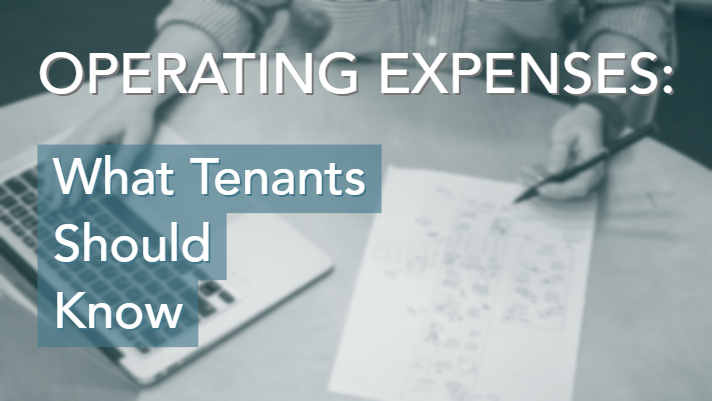By Tracy Altemus, CCIM – Executive Vice President, Healthcare Brokerage Services Agent, Ensemble Real Estate Solutions
Most leases have some sort of pass through for operating expenses of a building. A tenant either pays its share of expenses above an amount that was included in the initial rent, either with a Base Year expense stop or a defined expense stop (if a full service or modified gross lease), or 100% of the landlord’s operating expenses (if a triple net lease).
The devil is in the details and it is important to know what is or is not included in operating expenses of a building. The list of expenses varies widely, so it is highly important that you understand what your lease calls for. It is also wise to review/audit the operating expense reconciliations from your landlords annually.
A few things to look for/ask for when negotiating a lease:
- Gross up of expenses: This is a concept where the landlord will calculate the variable building expenses (such as utilities, janitorial, management fees) as if the building is 100% occupied; note that many leases just gross up to 95% occupancy. This is fair and actually benefits the tenant by not having large variances in expenses from year to year as a building leases up. That said, if you have a triple net lease, the tenant can save if the landlord doesn’t gross up. In addition, if you have a base year in a full service or modified gross lease, be sure your base year is also grossed up.
A quick example to show what grossing up is and why it is fair: If you occupy 2,000 sf and that happens to be 50% of the total building and the rest of the building is unoccupied, the cost to clean your suite may be $2000 for the year. When the landlord is reconciling operating expenses the actual expenses would be $2000 and you would be responsible for your pro-rata share of that. Thus, you would pay $1000, even though it actually cost $2000 for your suite. The landlord will gross up that variable expense to what it would cost if the building were 100% occupied, so they would assume that the total operating expenses were $4000 and that you are responsible for 50% (or $2000), which is the actual cost of your suite.
- Capital expenses: Most multi-tenanted medical buildings exclude capital expenses from operating costs. With the proliferation of condominiums and the interest in retail settings, we are seeing more and more include an amortized portion annually (which should be based on the useful life of the capital improvement, e.g. if it were a roof that was being amortized and its useful life was 20 years, then 1/20 would be amortized per year) or even the entire amount of a capital expense. You need to be aware of what your lease calls for and should try to exclude capital expenses if possible. At a minimum, if a capital expense is done in the last year of the lease, you should at least exclude that, as you won’t see the benefit of the investment.
- Cap on expenses: Many landlords will agree to cap increases on what they call controllable expenses, which typically means expenses other than utilities, property taxes, and insurance. However, all of that is negotiable therefore you need to discuss what you can get. The caps typically are 3% to 6% over the prior year’s expenses, so they can’t pass on increases above that in any one year. Landlords will often say they will agree to a cap but on a cumulative, compounding basis. This means that if your cap is 5% per year and one year the expenses increase 6%, they could only pass on 5%; but, if they only increase 3% the next year, then they can pass on that extra 1% from the prior year as well. This is because cumulatively the total expense increase for 2 years was less than 10% (or, 5% per year).
There are many nuances to a lease that tenants should be aware of and expenses are just one of them. For your protection, it is always good to have broker representation and/or an attorney to help navigate the many facets of your agreement, so that you are insulated from surprises as much as possible.
